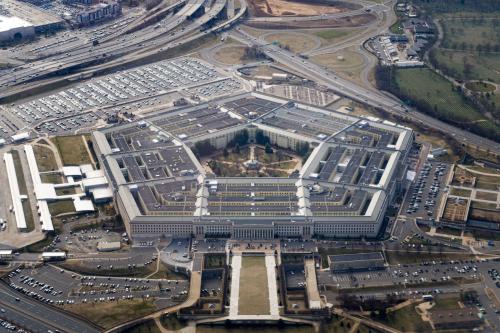One of the ways I personally like to explain Obama’s foreign policy is by describing the president as a reluctant realist. He has generally been tough, and pragmatic, on the job. His visions for a dramatically changed and better world have not evaporated but have generally been put on the back burner. These are issues I address in Bending History: Barack Obama’s Foreign Policy, the newly released book I co-wrote with Martin Indyk and Kenneth Lieberthal.
Another way to look at it is that the Obama administration has displayed a degree of flexibility and adaptiveness—on-the-job learning, so to speak—on numerous matters. On Iraq policy, for example, the president slowed down the U.S. troop withdrawal substantially—in contrast with his campaign promises—honoring most of the spirit of his earlier pledge without being bound by every letter. He had originally promised to have all units out within 16 months of becoming president; in fact, it took him 36 months.
And when he finally brought the troops home in late 2011, according to a schedule first designed and agreed upon by President Bush and Prime Minister Nouri al-Maliki back in 2008, he again was being pragmatic, even though the move elicited howls of protest from the right of the U.S. political spectrum. The right wanted U.S. forces to stay longer. In truth, so did I, and I wrote as much at the time.
But in the end, Iraqis told Obama that U.S. forces could not have legal immunity on Iraqi soil. At that point, leaving became the right decision. It is hard to see how an American president could have—or should have—retained U.S. forces abroad in a country that was not willing to take proper steps to invite them to remain under a normal legal framework. As Obama’s critics sometimes fail to acknowledge, the Iraqi democracy that we helped create has a right to make its own decisions, and—as Obama would be the first to recognize—Washington has limits on its influence, even with Baghdad.
Obama’s rhetoric has sometimes been misplaced, as when he declared the return of all U.S. troops from Iraq a signature accomplishment of his administration, even though his administration was on record as trying to reach an accord with Iraqis to keep them deployed there longer. But, on balance, we believe it is better for the future of U.S. military intervention abroad that it reestablishes its reputation for leaving when asked than for remaining where it is not wanted. The United States has spent a fortune in treasure and the blood of American soldiers to give Iraqis a chance to stand on their own feet.
Now, Obama must figure out how to deal with an increasingly autocratic Maliki; at a minimum, business as usual on matters like the pending U.S. sale of F-16s to Iraq should be suspended until Maliki honors his previous political pledges and constitutional obligations. Thankfully as of this writing, Maliki appears to be acting more reasonably and more in line with the constitution than a couple months ago, as U.S. troops were saying farewell. Of course, it is impossible to predict the next chapter of the Iraq saga. But Obama, on balance, handled the U.S. troop drawdown reasonably well.



Commentary
President Obama: Reluctant Realist
March 16, 2012